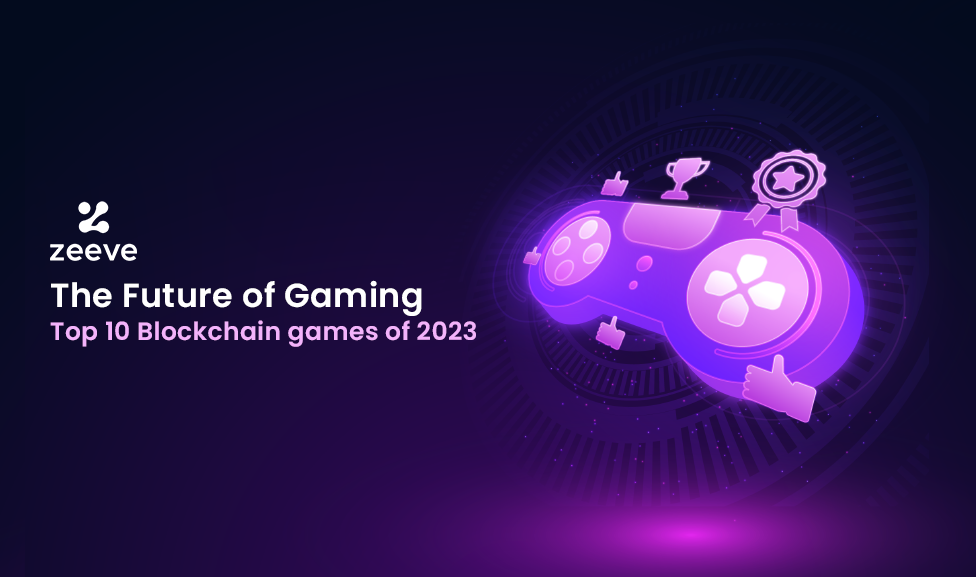Print Fix Hub
Your go-to source for everything print-related, from troubleshooting to tips.
Game On Chain: How Blockchain is Shaping the Future of Play
Discover how blockchain is revolutionizing gaming! Dive into innovative play, ownership, and endless possibilities in Game On Chain.
Understanding Blockchain Gaming: What You Need to Know
Blockchain gaming represents an innovative convergence of technology and entertainment, allowing players to truly own their in-game assets through the use of decentralized ledgers. Unlike traditional gaming, where items typically reside on a company-controlled server, blockchain gaming enables players to buy, sell, and trade items on an open marketplace. This ownership is facilitated by Non-Fungible Tokens (NFTs), which certify the uniqueness and scarcity of each digital asset. Additionally, blockchain technology enhances transparency in gaming ecosystems, ensuring fairness and reducing fraud. Understanding these fundamentals is essential for anyone seeking to engage with this rapidly evolving sector.
The benefits of blockchain gaming go beyond ownership; they include enhanced security, play-to-earn models, and a vibrant community-driven approach. Players are not just consumers; they can contribute to game development and governance through decentralized autonomous organizations (DAOs), shaping the future of their favorite games. Moreover, with the rise of cross-platform compatibility, players can use their assets across different games and environments, creating a new form of economic activity within the gaming industry. As you explore the world of blockchain gaming, it’s crucial to stay informed about the latest trends and technologies that are shaping this exciting frontier.

Counter-Strike is a highly popular multiplayer first-person shooter game that has gained a massive following since its release. Players can engage in strategic team-based gameplay, where they can either work together to complete objectives or eliminate the opposing team. For those looking to enhance their gaming experience, check out this rollbit promo code for exclusive offers and benefits.
The Role of NFTs in Transforming Online Gaming
The advent of NFTs (Non-Fungible Tokens) has sparked a significant transformation in the online gaming landscape. Unlike traditional in-game assets that are owned solely by the game developers, NFTs provide players with true ownership of their digital collectibles and assets. This revolutionary shift allows gamers to buy, sell, and trade their items across various platforms, creating a vibrant secondary market. Furthermore, the integration of NFTs encourages developers to create unique and scarce in-game items, enhancing player engagement and investment in the gaming experience.
Moreover, NFTs foster a sense of community among players, as they can showcase their unique assets and achievements in social spaces. This has led to the rise of in-game economies that mimic real-world dynamics, giving players more reasons to invest time and resources into their gaming experiences. Additionally, as the technology behind NFTs continues to evolve, we are likely to see more innovative applications, such as cross-game assets and interoperability, which can fundamentally shape the future of online gaming, making it more immersive and participatory than ever before.
How Blockchain Technology is Revolutionizing In-Game Economies
Blockchain technology is reshaping the landscape of in-game economies by introducing transparency, security, and unprecedented ownership of digital assets. Unlike traditional gaming models, where virtual items are often locked within a single game's ecosystem, blockchain enables players to truly own their assets through non-fungible tokens (NFTs). This means that items like skins, weapons, and even virtual land can be traded across different platforms and marketplaces, allowing players to capitalize on their in-game investments. This shift not only enhances player engagement but also creates a new revenue stream for developers and gamers alike.
The implementation of blockchain also addresses issues of fraud and cheating that have plagued online gaming for years. With a decentralized ledger, developers can ensure that every transaction is recorded and verified, making it nearly impossible for players to manipulate the system. As a result, a fairer and more balanced gaming environment is emerging, where players can compete on equal footing. Furthermore, the potential for integrating decentralized finance (DeFi) elements into gaming is creating exciting opportunities for users to earn real money through play-to-earn models, forever changing the way we think about in-game economies.